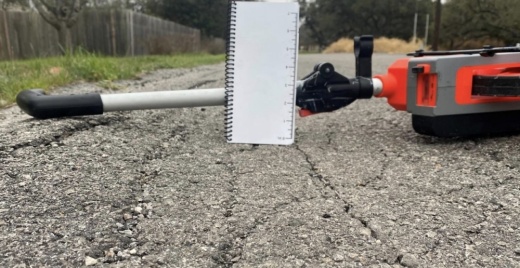Shavano Park’s May 7 election will include a proposed $10 million bond to fix multiple roads in older parts of town.
City Council held a special meeting Feb. 18 at which council members unanimously approved calling the bond election. The council’s act came less than two hours before the state’s 5 p.m. deadline for local governments to schedule a May 7 election.
According to City Manager Bill Hill, a 2021 assessment of street conditions across Shavano Park found that 10 older roads and the cul-de-sacs of five other streets immediately east and west of Northwest Military Highway all are past the end of their design life and require major fixes.
“They’re literally on the brink of failure,” Hill said.
Those roads under city scrutiny are:
- Bent Oak Drive
- Chimney Rock Lane
- Cliffside Drive
- End Gate Lane
- Fawn Drive
- Post Oak Way
- Saddletree Road
- Shavano Drive
- Wagon Trail Road
- Windmill Road
- Elm Spring Lane
- Honey Bee Lane
- Hunters Branch
- Hunters Branch South
- Turkey Creek Road
Additionally, the city is looking at rehabilitating De Zavala Road between Lockhill Selma Road and Northwest Military Highway, and adding drainage improvements, a bicycle lane and sidewalks along that stretch of road, Hill said.
Hill said the city developed three options, one of which allows the city to fix all the targeted roads within two years and issue voter-approved debt immediately after the May 7 election or take up to 10 years to issue the debt.
After conferring with city engineers and bond attorneys and finance consultants, it would benefit Shavano Park to proceed with a May bond election given expectations of an interest rate hike and a continued rise in inflation, Hill said.
Hill said the city risks even higher interest rates and road project-related costs if it were to push off such an election.
While Shavano Park has spent $486,423 on street maintenance and repairs over the last 10 years, it is more cost-efficient to rebuild the targeted roadways in a bond-supported program, Hill said.
“If we want to repair streets—nobody wants to do it; it’s inevitable—it’s best to phase them out,” Hill said.
Hill said financing a voter-approved street program could include a combination of a $0.01 hike in the debt service portion of the city’s total property tax rate, $1.3 million in available road maintenance funding and money from projected street maintenance sales tax revenue in coming years.
Hill also said it is possible to apply for federal funds to support the proposed De Zavala improvements.
City engineers suggested adding ribbon curbing as part of the proposed road and drainage upgrades.
“It will prolong the life of the asphalt,” said Chris Otto, an executive with KFW Engineers, the city’s consulting engineering firm.
Mayor Bob Werner said the city has spent a long time studying which streets are in dire need of improvement.
“There’s going to be continued work on how all of this fits together,” Werner said.
Council Member Pete Miller expressed appreciation for the council receiving three options, but said the $10 million bond election makes the most sense. If approved by voters, the $10 million bond would be Shavano Park’s largest issuance of bonds for road restoration since 2004, local officials said.
“You gave us three options, but there’s really only one option. It’s a no-brainer, correct?” Miller told Hill.
The council on Feb. 18 also approved the city using voter-approved bond proceeds to reimburse itself for preliminary road engineering and surveyor work.
Hill said the city plans to use public meetings and other avenues to inform residents about the bond election.
Early voting will be held April 25-May 3, according to the state’s May 7 election calendar.





